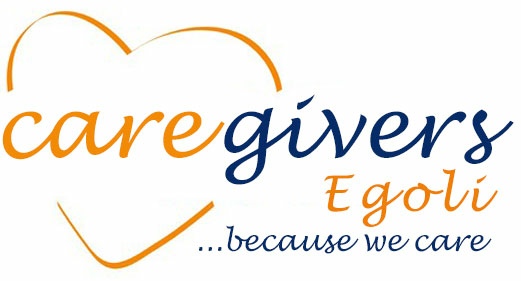

Website developed by:

Caregivers Egoli in Gauteng, South Africa, provide suitable caregivers for a variety of conditions:
Dementia / Alzheimer’s:
Dementia/Alzheimer’s is a chronic neurodegenerative disease that starts slowly and progresses over time.
Over time, as the disease gets worse, patients can have difficulty remembering things, struggle with
speaking and language, disorientation, mood swings and other behavioural issues.
Our caregivers are fully trained on the different stages of dementia / Alzheimer’s and can provide adequate
care to these patients.
A Caregiver placed in a home with a dementia patient will provide emotional support, as these patients go
through many emotions and mood swings, which might be difficult to handle from time to time.
Cancer:
Cancer can take its toll on the patient, as well as the family members. Cancer patients need a lot of help and
care, especially after Chemo Therapy sessions. Our Caregivers receive training on what is required from them to
provide suitable living conditions and a safe environment for the patient. -
Read More On Caring For A Cancer Patient
Physically Disabled:
There are many challenges that need to be faced when being physically disabled. One can be bound to a wheelchair
or even a bed and not being able to use your most important limbs might place you in a difficult situation where
you will benefit from the services of a caregiver. The caregiver can assist you in your physical challenges like
bathing, getting dressed, making food, eating, etc.
Stroke Patients:
A stroke can be a devastating and emotional experience that might cause extensive or minor damage to the brain,
resulting in the body not functioning like it used to. Not all stroke patients are effected the same, therefore
caring for the patient differs. A stroke can result in impairment to the one side of your body, such as your arm,
leg, eye, etc. The stroke patient might have difficulty walking and doing their daily tasks. The stroke damage can
make it difficult for the patient to communicate. Having a caregiver that assist and develop a relationship, and
provide emotional support to the patient will be of great benefit.
Post-Operative Recovery:
Post-operative care is usually just temporary, until the patient recovers. Certain surgical procedures can result
in the patient not being able to walk, not being able to use their arms or hands, other procedures might result in
the patient not being able to see, therefore a caregiver is placed to assist the patient in daily tasks until the
patient recovers and is able to perform the tasks themselves.
Frailty:
Providing care for frail, older people means the world to them. Sometimes elderly people might have some resistance
to receiving care, yet when the caregiver is there they realise how much they really needed it and appreciate the help.
Our Caregivers are specifically trained on how to care for the elderly.
Wherever possible we do our best to keep the same carers for continuity of care for the patients



 Contact us today! click here
Contact us today! click here
